Malaria research at the Imperial Festival
by Christo Hall
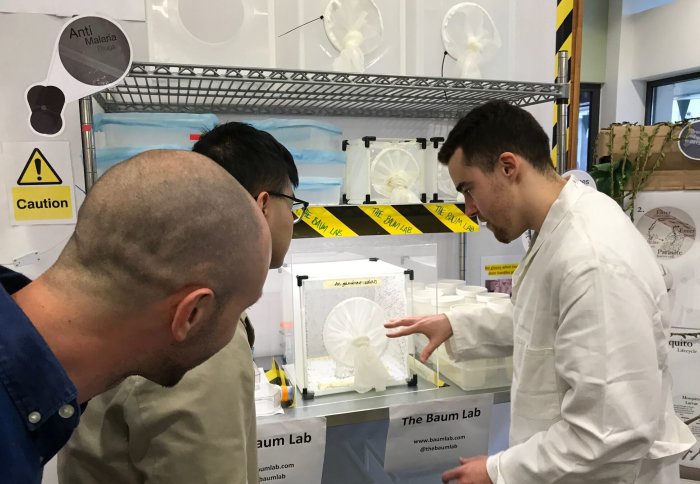
Imperial malaria researchers shared their work with the public through interactive games, demonstrations and conversation at this year's Imp Fest.
Members of the Imperial College Network of Excellence in Malaria were all present across two stands and in one lecture theatre at this year’s Imperial Festival – the largest representation of Imperial’s malaria research at the festival to date.
Interactive learning
the idea was to give people a taste of what it’s like to work in a lab and in the field Joshua Blight Life Sciences
Over the two days of the Festival, both stands saw hundreds of people visit and interact with their creative and engaging activities. At one stand, under the leadership of the Target Malaria team, students and postdocs invited members of the public to play ‘how tasty is your blood?’, an experiment to see whose blood attracted live mosquitoes that they had on display. At the other, researchers from across the Network tested people’s field work skills by equipping them with the knowledge to diagnose malaria from blood smears under a microscope.
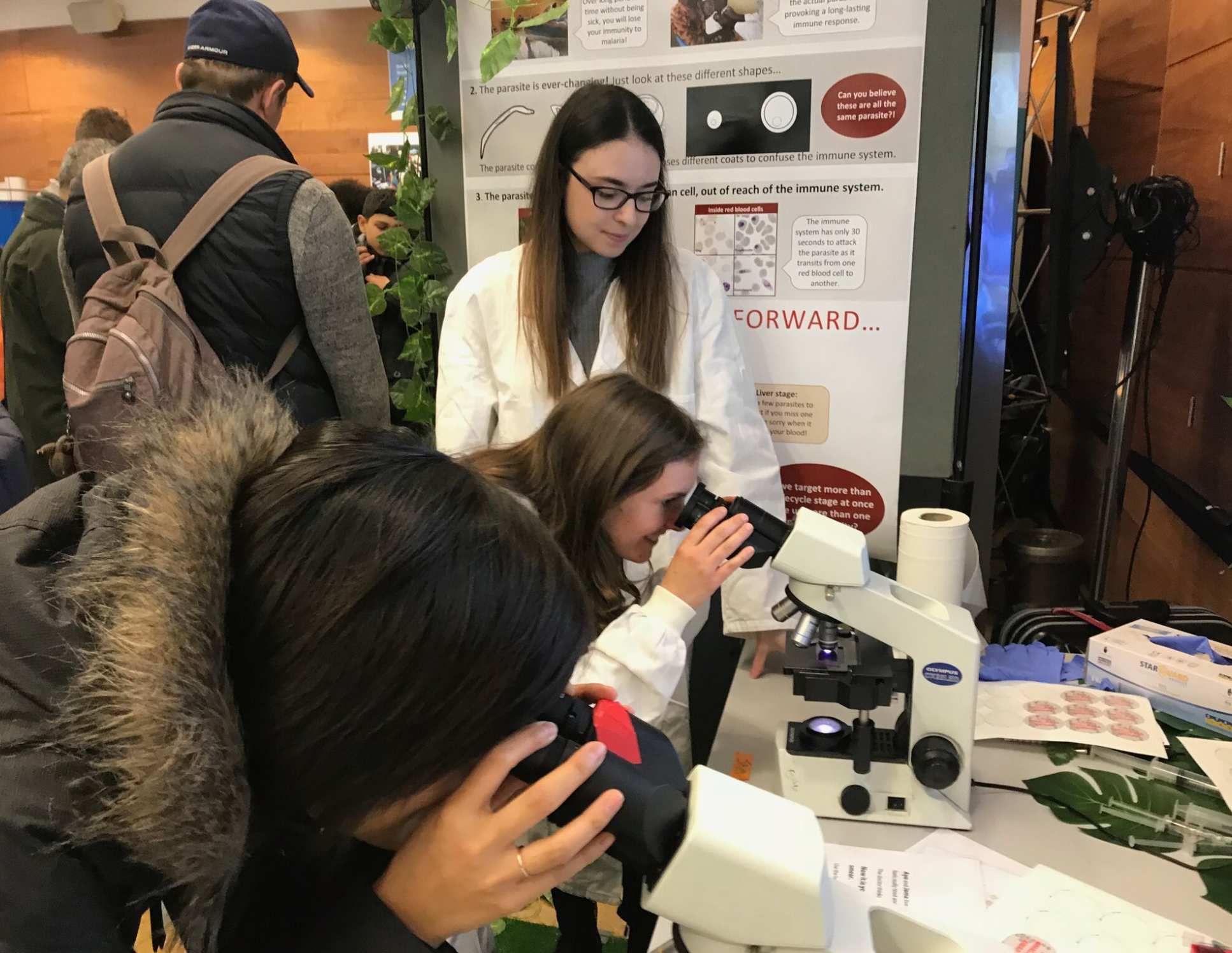
Dr Joshua Blight from the Baum lab was one of the researchers at that diagnostics stand and he shared with me its objective: “the idea was to give people a taste of what it’s like to work in a lab and in the field – to give people the chance to learn more about the life cycles of a malaria parasite in both human and mosquito hosts, and how we are using that information to test new drugs and to learn more about resistance to current drugs.”
Inspiring a new generation of scientists
Members of both stands were kept busy answering the many questions from young people who were visibly excited by the mosquitoes, the tools of the lab and bold ideas. Dr Alekos Simoni from the Crisanti lab was one of the researchers responding to those young and inquisitive minds: “All through the day we were getting questions from children like ‘How does a gene drive work?’, ‘How do we prevent malaria transmission?’, ‘What are the purpose of mosquitoes?’, ‘Why do we need them?’. It was great to see so many young people inspired by real research and I was pleased and surprised by the level of people’s knowledge.” Dr Blight added, “I think we can learn as much from their questions and responses as they can from our research!”
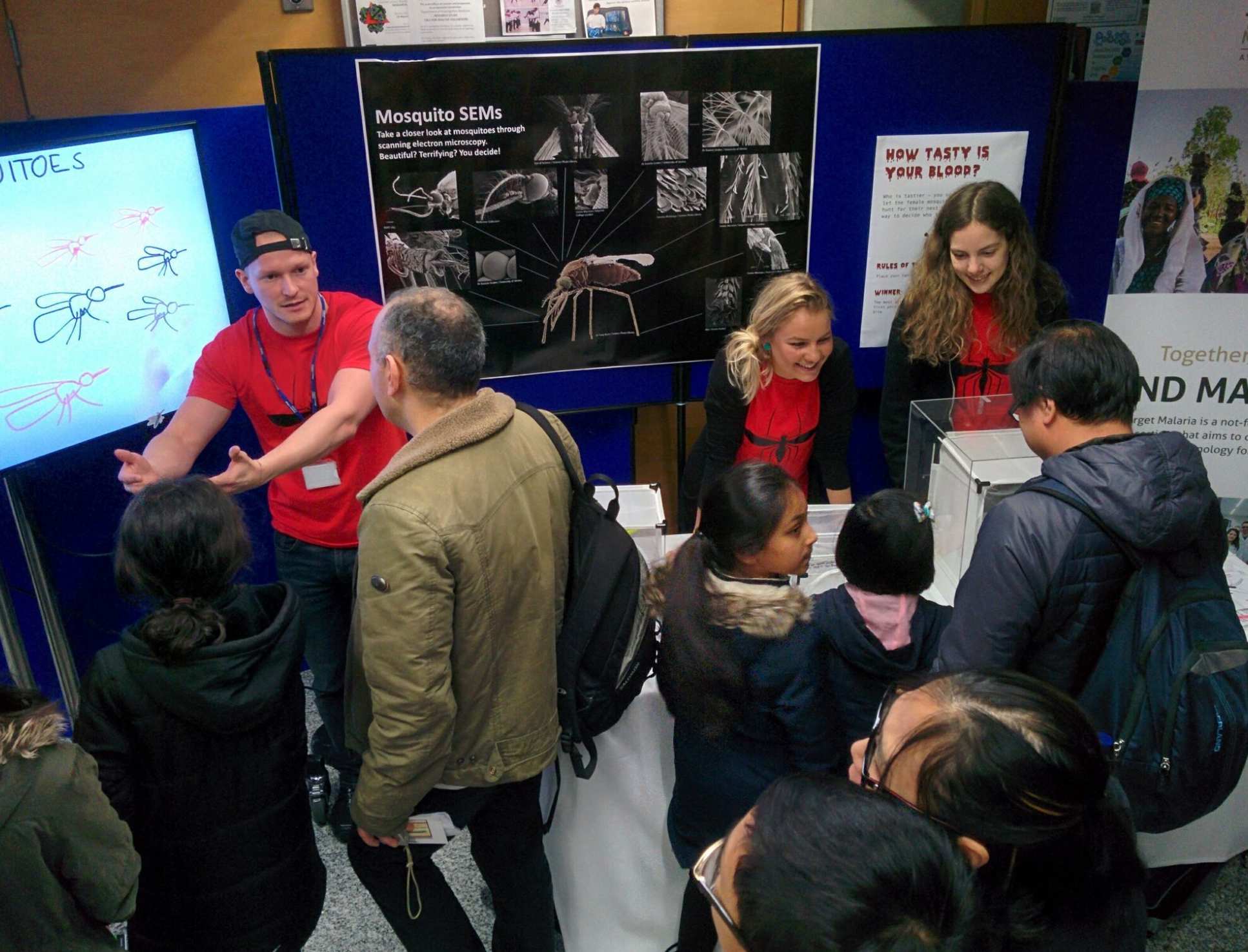
Also at the Festival, Dr Aubrey Cunnington gave a talk to Imperial alumni which surveyed the status of global efforts to malaria control and eradication, providing answers to why according to the 2017 WHO annual malaria report, progress has stalled. Dr Cunnington cited insecticide resistance, anti-malarial resistance, and the need for new drugs, diagnostics and vaccines. He went on to speak optimistically about the challenges being met and identified how Imperial College, through interdisciplinary and multi-faculty collaboration, is at the forefront of addressing these challenges with innovative solutions.
You can read more about these solutions below:
- Transmission blocking vaccines
- Diagnostics and engineering for Malaria
- Understanding and treating severe malaria
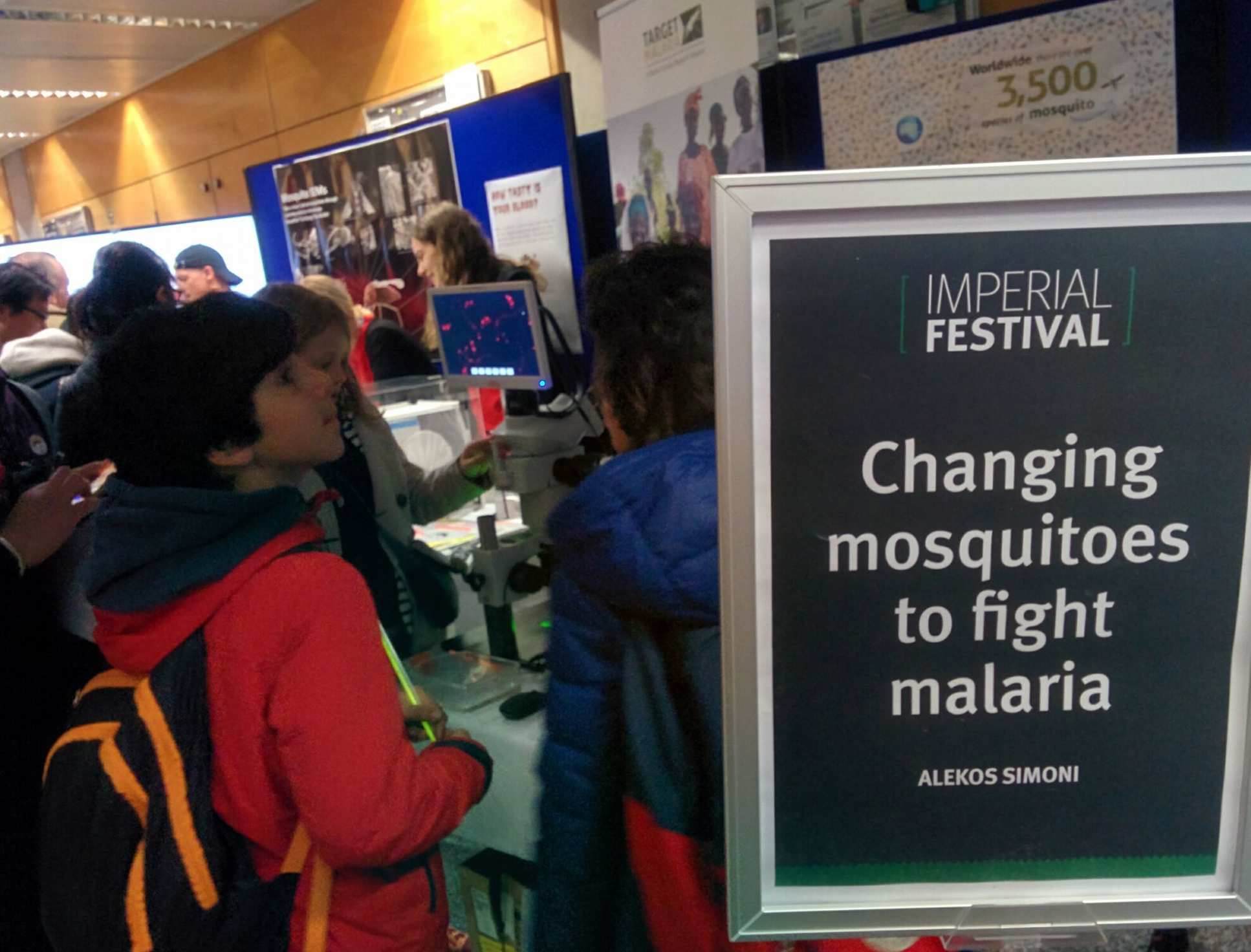
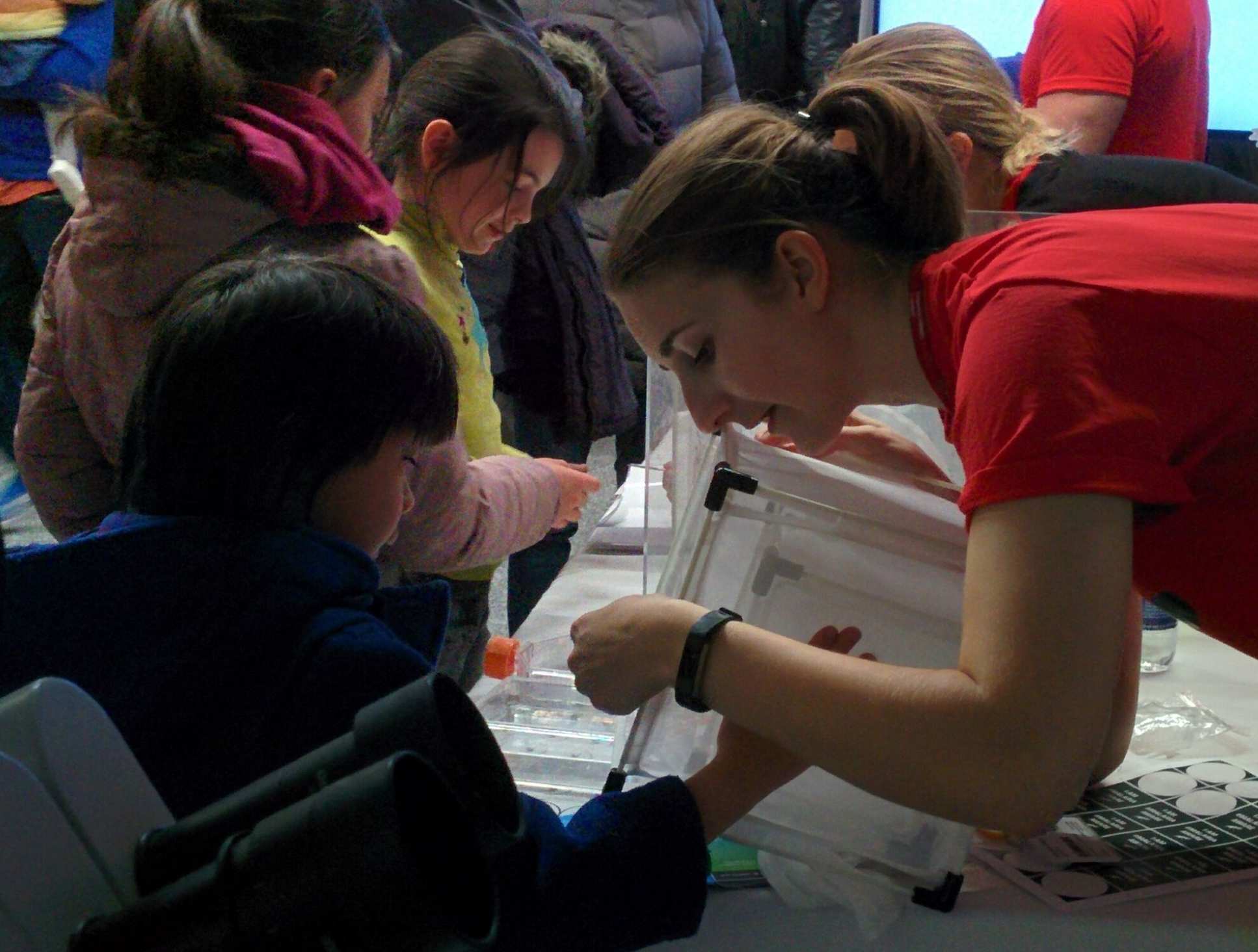
Article text (excluding photos or graphics) © Imperial College London.
Photos and graphics subject to third party copyright used with permission or © Imperial College London.
Reporter
Christo Hall
Department of Life Sciences